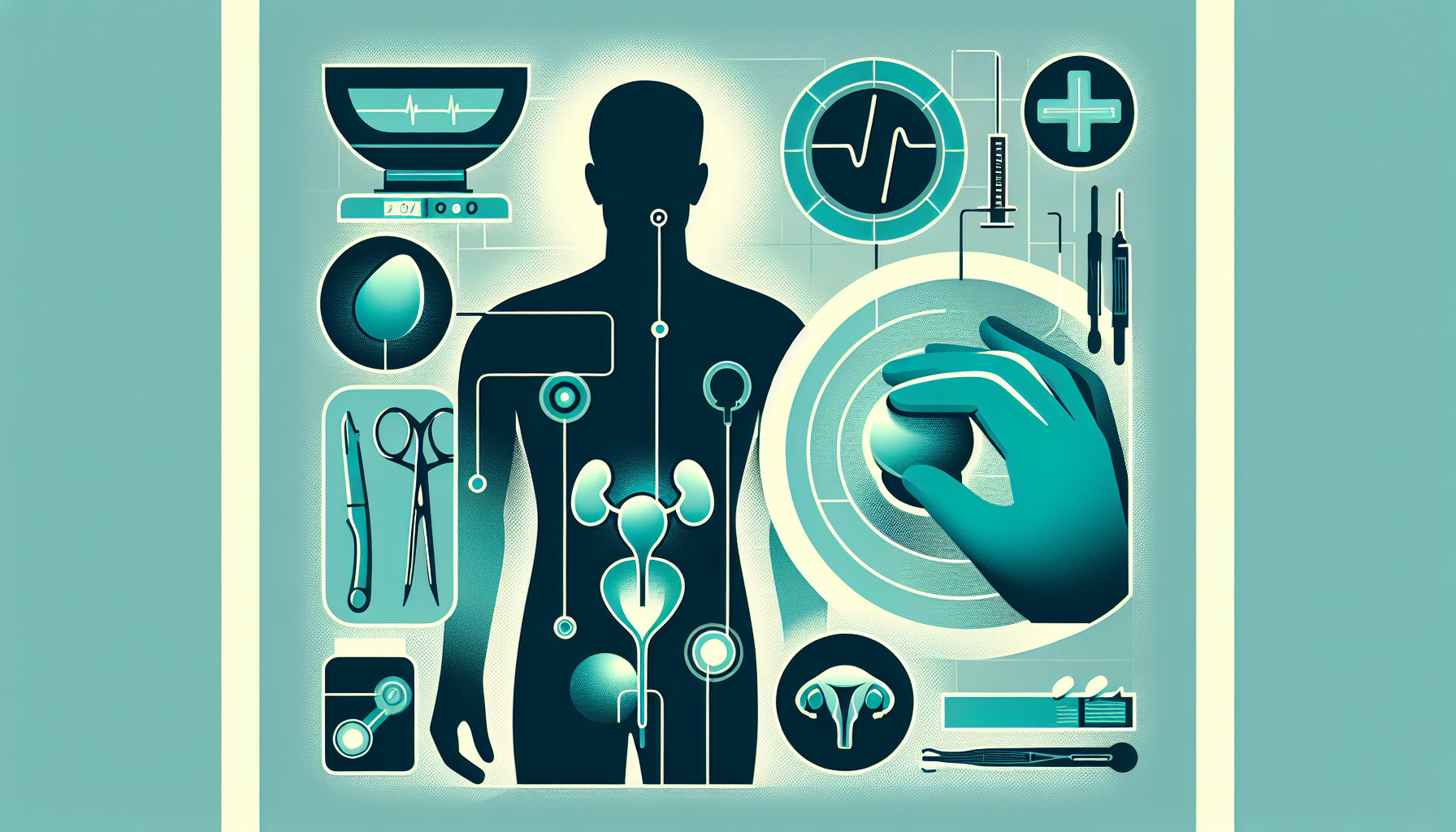Our Summary
This research paper is about acute bacterial prostatitis, a sudden infection in the prostate gland causing pain in the pelvic area and symptoms linked to the urinary tract, like difficulty or pain while urinating, urinating too often, and inability to urinate. It can also cause symptoms that affect the entire body, like fevers, chills, nausea, vomiting, and feeling unwell.
Though the exact number of cases is unknown, acute bacterial prostatitis is thought to make up about 10% of all prostate infections. Most of these infections are acquired in the community, but some occur after procedures that involve the urethra (the tube that carries urine from the bladder to the outside of the body), or after a prostate biopsy.
To diagnose this condition, doctors will take a medical history, perform a physical examination (which includes checking the abdomen, genitals, and rectum to find out if the prostate is tender, enlarged, or soft), and may also do a urine analysis. In all suspected cases, a urine culture should be done to identify the bacteria causing the infection and to find out which antibiotic would be most effective against it. More tests can be done based on the patient’s risk factors and how severe the illness is. X-rays are usually not needed.
Most patients can be treated at home with oral antibiotics and supportive care. However, hospitalization and powerful intravenous antibiotics may be needed in patients who are very sick, can’t urinate on their own, can’t tolerate oral intake, or have risk factors for antibiotic resistance. Common antibiotics used include ceftriaxone and doxycycline, ciprofloxacin, and piperacillin/tazobactam.
The risk of hospital-acquired bacterial prostatitis can be reduced by using antibiotics, such as ciprofloxacin, before a transrectal prostate biopsy.
FAQs
- What is acute bacterial prostatitis and what are its symptoms?
- How is acute bacterial prostatitis diagnosed and treated?
- Can the risk of prostatitis be reduced before undergoing a transrectal prostate biopsy?
Doctor’s Tip
One helpful tip a doctor might tell a patient about prostate biopsy is to discuss any concerns or questions they have beforehand. It is important for the patient to understand the procedure, potential risks, and benefits in order to make an informed decision. The doctor may also recommend taking an antibiotic before the biopsy to reduce the risk of infection. Additionally, the patient should follow any pre-biopsy instructions provided by their healthcare provider to ensure a successful and safe procedure.
Suitable For
Patients who are typically recommended for a prostate biopsy include those with elevated prostate-specific antigen (PSA) levels, abnormal digital rectal examination findings, or a family history of prostate cancer. Additionally, patients with persistent or worsening lower urinary tract symptoms, such as difficulty urinating or frequent urination, may also be recommended for a prostate biopsy. Other indications for prostate biopsy may include a previous negative biopsy with ongoing suspicion of prostate cancer, or a clinical suspicion of prostate cancer based on imaging studies, such as MRI or ultrasound. Overall, the decision to perform a prostate biopsy should be individualized based on the patient’s specific risk factors and clinical presentation.
Timeline
Before a prostate biopsy:
- The patient may undergo a digital rectal examination (DRE) to check for any abnormalities in the prostate gland.
- The patient may be advised to stop taking certain medications, such as blood thinners, before the biopsy.
- The patient may undergo imaging tests, such as an ultrasound, to help guide the biopsy procedure.
After a prostate biopsy:
- The patient may experience some discomfort or pain in the prostate area, which can be managed with over-the-counter pain medications.
- The patient may notice blood in their urine or semen for a few days after the biopsy.
- The patient may be advised to avoid strenuous activities and heavy lifting for a few days after the biopsy.
- The patient will need to follow up with their healthcare provider to discuss the biopsy results and any further treatment options.
What to Ask Your Doctor
- Why do I need a prostate biopsy?
- What are the potential risks and complications associated with a prostate biopsy?
- How will the biopsy be performed?
- Will I need to do anything to prepare for the biopsy?
- How long will the procedure take and will I need someone to drive me home afterwards?
- How soon will I receive the results of the biopsy?
- What will the biopsy results tell us about my condition?
- What are the next steps if the biopsy results show signs of prostate cancer?
- Are there any alternative tests or procedures that could provide similar information?
- Are there any special instructions to follow after the biopsy to promote healing and reduce the risk of infection?
Reference
Authors: Coker TJ, Dierfeldt DM. Journal: Am Fam Physician. 2016 Jan 15;93(2):114-20. PMID: 26926407
